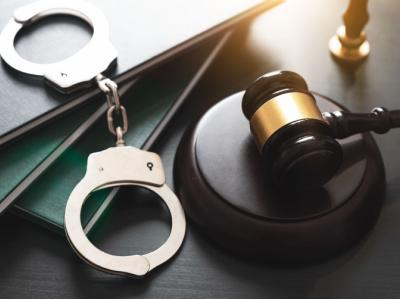Supreme Court Decision May Affect Stalking Charges
 The U.S. Supreme Court regularly reviews high-profile cases, providing interpretations of various laws and issuing decisions that may affect criminal cases and other legal matters. In some cases, the Supreme Court’s rulings may lead to reinterpretations of state statutes, and this may affect the types of charges people may face and the penalties that may be imposed upon conviction. In one recent case, the Supreme Court issued a ruling that may affect charges related to stalking. Those who have been accused of this offense can work with an attorney to determine how changes in the laws may play a role in their defense.
The U.S. Supreme Court regularly reviews high-profile cases, providing interpretations of various laws and issuing decisions that may affect criminal cases and other legal matters. In some cases, the Supreme Court’s rulings may lead to reinterpretations of state statutes, and this may affect the types of charges people may face and the penalties that may be imposed upon conviction. In one recent case, the Supreme Court issued a ruling that may affect charges related to stalking. Those who have been accused of this offense can work with an attorney to determine how changes in the laws may play a role in their defense.
Counterman v. Colorado Addresses Threatening Messages
In the case of Counterman v. Colorado, the Supreme Court reviewed the conviction of a man who was accused of stalking a local musician. Over six years, he sent her thousands of messages through social media, including some messages that appeared to be threatening, such as stating that he wanted her to die. After learning that the man had previously been arrested for making threats of violence against women, the musician contacted the police, and the man was arrested and eventually convicted of stalking.
The defendant appealed the conviction, and the case eventually made its way to the Supreme Court. Upon review, the court overturned the conviction, and in its ruling, it created a new standard for determining whether messages sent by alleged stalkers may constitute criminal violations or whether they may be protected as free speech under the First Amendment. Under this standard, messages may only be considered stalking if a person understood that there was a likelihood that their words or actions could be considered threatening, and they consciously disregarded that risk.
Stalking Laws in Connecticut
While the Supreme Court’s ruling may affect criminal cases in multiple states, people who are accused of stalking may still be charged with these offenses. Defendants who may face stalking charges should be aware of the actions that could lead to criminal charges and the penalties they may face if they are convicted.
Connecticut law identifies several degrees of stalking charges. In most cases, accusations of stalking will fall under the category of stalking in the second degree. These charges may apply if a person is accused of engaging in a course of conduct involving two or more acts that would cause someone to reasonably fear for their safety, the safety of someone else, or the safety of an animal. Acts that inflict emotional distress may also result in stalking charges. Second degree stalking is a Class A misdemeanor offense.
A charge may be elevated to first degree stalking if an alleged offender had previously been convicted of stalking, if their conduct violated a restraining order or another type of court order, if the alleged offender was at least 22 years old and the victim was under the age of 16, or if stalking was allegedly committed due to a person’s race, religion, gender identity, sexual orientation, or disability. Stalking in the first degree is a Class D felony.
Class D felony charges may also apply if a person is accused of electronic stalking. This offense involves using any form of electronic messaging, including text messages, email, or social media, to engage in a course of conduct that causes someone to reasonably fear that they will be killed or suffer serious bodily harm. This offense may also involve the infliction of substantial emotional distress or the use of electronic monitoring to track or surveil a person.
Contact Our Hartford Stalking Defense Lawyer
If you have been accused of stalking, harassment, or other related offenses, you will need to understand the specific offenses you may be charged with, and by working with an experienced lawyer, you can determine your best options for defense. At Woolf & Ross Law Firm, LLC, our Connecticut stalking charges attorney can provide guidance on the best ways to respond to these charges and defend against a conviction. We will work to protect your rights and help you resolve your criminal case successfully. To set up a free consultation, contact us today at 860-290-8690.






